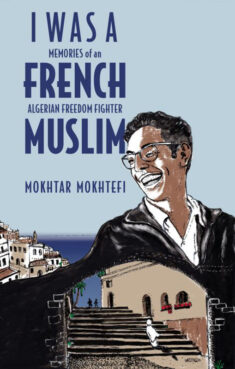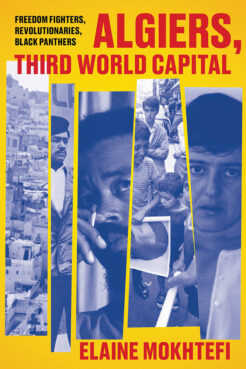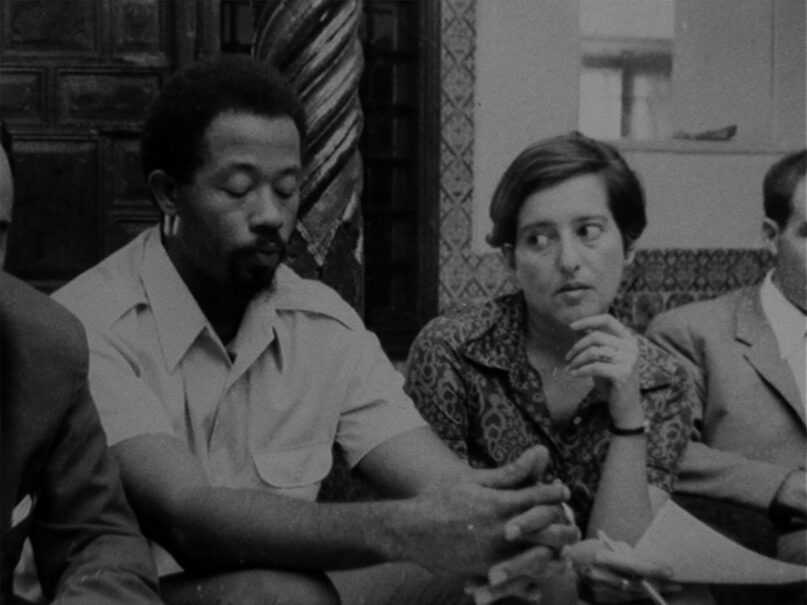(RNS) — From Fidel Castro to Ho Chi Minh, Elaine Mokhtefi has met some of the most important socialist revolutionaries of the 20th century.
Born to a Jewish family in Hampstead, New York, in 1928, she suffered from the antisemitism of the era and soon nurtured an interest in progressive politics. At the age of 16, she was accepted at Wesleyan College in Georgia. Yet, after a year at the Christian school, she was expelled over her objection to the segregationist policies of the era.
She was involved in various peace and justice movements on the eve of World War II and, after the war, settled in France to work as a translator for various political groups. By 1960, she was part of a small group that lobbied the United Nations on behalf of the Algerian National Liberation Front (FLN).
“They never questioned my religion or where I was from. That speaks very well of those men,” Mokhtefi told Religion News Service. “I felt very much at home, and I was a product of discrimination myself, so there was a very deep understanding of our mutual experiences. I was in complete tune with them.”

“I Was a French Muslim,” by Mokhtar Mokhtefi. Courtesy image
Indeed, it was Algeria that was to become the focus of her life in many ways. She would eventually marry Mokhtar Mokhtefi, an Algerian freedom fighter. Mokhtefi’s translation of her husband’s memoir, “I Was a French Muslim,” will be published in September by Other Press.
“It was essential for him to tell the truth,” said Mokhtefi. “(The memoir) reflects his disappointment in independent Algeria. He was disappointed that Algeria failed to uphold the ideals of democracy, justice and freedom.”
Algeria gained its independence from France in 1962, yet her husband’s disappointment is apparent in the memoir’s closing passages as the author visits a free Algeria for the first time against the wishes of his FLN superiors. Yet, despite these early disappointments, the Mokhtefis would live in Algeria after independence, and she would work as a translator and facilitator for a number of rebel groups.
During the 1960s, an independent Algeria opened its doors to groups from around the world, including the Black Panthers, with whom Mokhtefi interacted personally.
“They really only saw each other on a romantic plane,” Mokhtefi said of the Black Panthers and the Algerian government. “For the most part, the opinions of the Black Panthers about Algeria were forged through the writing of Frantz Fanon and the film ‘The Battle of Algiers,'” she said.
“(The Black Panthers) had never been overseas and found themselves in a third world country that had very little technical capability. For their part, the Algerians saw the Black Panthers as members of another discriminated group.”
Both she and her husband were soon disillusioned with the illiberal turn of independent Algeria and moved to New York. Yet, it was only after the turn of the millennium that the couple began working on separate books about the historical period in which they both played key roles.

“Algiers, Third World Capital: Freedom Fighters, Revolutionaries, Black Panthers” by Elaine Mokhtefi. Courtesy image
Mokhtefi published her own book, “Algiers, Third World Capital: Freedom Fighters, Revolutionaries, Black Panthers,” in 2018. Three years after her husband passed away, his memoir was still unpublished. His work is heterodox to other memoirs of the period in part due to its portrayal of religion and its portrayal of European settlers as individuals.
When Mokhtar Mokhtefi was born in 1935, there were roughly a million pied-noir, or European, settlers living in Algeria. The overwhelming majority supported continued union with France, though a handful were exceptions. “I Was a French Muslim” includes his encounters with members of the Catholic clergy sympathetic to the Algerian cause of independence.
“These members of the worker-priest movement were exceptional and offered very strong support for the Algerian cause and this tempered his views toward France. Amongst them were some very fine figures, who took tremendous risks,” Mokhtefi said.
Such priests even helped her husband visit France, where he encountered a Bosnian doctor working as a cook who had hopes to join with the FLN. Decades later, the flow of foreign fighters would go the other way when numerous Algerians fought for Bosnia in the early 1990s.
The book includes some examples of how folk Islam mixed with the leftist ideology of the FLN. One story often told is of a truck full of FLN guerrillas who are stopped for inspection at a French checkpoint. Yet, when the French lifted the flap in the back of the truck, the French soldiers only found a truck full of sheep.
“There were many stories like that during the Algeria War, and that was one of the most famous,” Mokhtefi recalled. “People seemed to believe miracles during the war. Yet, victory was the real miracle. Who would have thought in 1954, when the armed struggle began, that the Algerian people with their bare hands, rusty old French rifles, were able to defeat the fourth-strongest military power of the time?”





